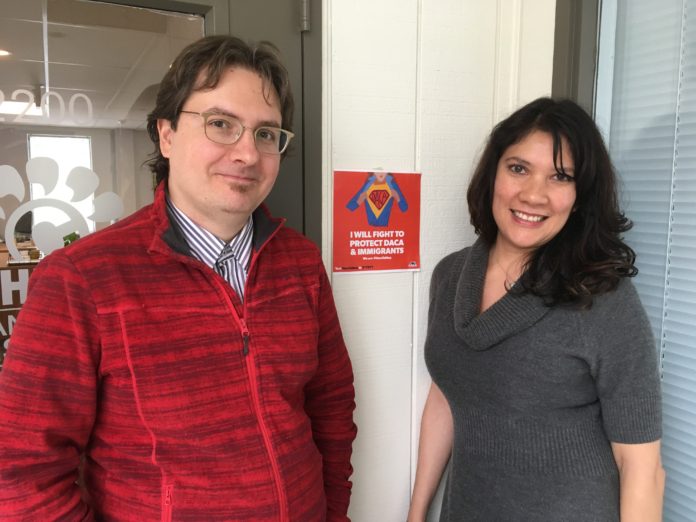
Several community organizations around the Chapel Hill-Carrboro area are supporting those enrolled in the Deferred Action for Childhood Arrivals (DACA) program in the wake of the announcement from the Attorney General Jeff Sessions on September 5 that it would be rescinded.
Institutions such as local immigrants’ rights advocate organization El Centro Hispano, The University of North Carolina (UNC) and the Chapel Hill and Carrboro governments have shown support for the program and those enrolled in it, ‘the dreamers.”
The program allows young undocumented immigrants to study, work and drive, along with a host of other privileges normally restricted to American citizens. It protects them from deportation.
“The main goal is for [the dreamers] to be able to be free, to drive and to be around without fear of what could happen if someone were to stop them and get them in trouble,” Pilar Rocha-Goldberg, President and Chief Executive Officer of El Centro Hispano, said. “We want to give them the chance to live a free life and to not live in fear all the time.”
El Centro Hispano has made an agreement with the governments of Chapel Hill and Carrboro to host free information clinics and allocate funding for those who are still eligible to renew their status. Only those whose DACA status expires between September 5, 2017 and March 5, 2018 can renew.
“A lot of folks who came here and now have DACA may have other options available to them,” Raleigh immigration lawyer Ana Nuñez said. “It’s just getting to meet them and explaining the options available to them after talking to them. That seems to provide people with a little bit of hope.”
The clinics, which offer financial aid and renewal forms with professional help, illustrate the local government’s support for the program and those enrolled in it. The renewal fee is $495 per form, a cost that the governments of Chapel Hill and Carrboro have agreed to fund.
“We want to do whatever we can to help,” Chapel Hill mayor Pam Hemminger said. “We’re as frustrated as individuals are because we don’t understand the why and the hows, and we’re not getting good explanations from the federal government.”
Students like sophomore Stephany Morales know others enrolled in the program. “I know a lot of people who have [DACA]; having it helps them a lot and makes them feel safe,” Morales said.
Many dreamers in the area are here to obtain degrees at the various universities located in the Triangle and risk losing their status if they are unable to renew.
“We have a lot of students here at [UNC] who are in DACA, and the university is trying to be as helpful as possible,” Hemminger said. UNC itself said in a statement that it “remains fully committed to welcoming and supporting students enrolled in this program.”
An effective substitute for DACA may be closer to completion than expected. Republican senators Thom Tillis of North Carolina and James Lankford of Oklahoma have introduced a new bill that aims to replace it called the Succeed Act. Although it does not meet the ideals of El Centro Hispano and its associates, it is a good sign for those who hope for a replacement program.
“I think they should make a new and improved [program] to replace DACA because people that have it haven’t really been anywhere else other than the U.S. and it is the home that they know,” Morales said.
El Centro Hispano is urging dreamers and supporters to seek out help and consider their options, regardless of whether they fall inside the renewal deadline.
“We are a big community and we are together. We will continue to support [the dreamers] and be with them,” Rocha-Goldberg said.











